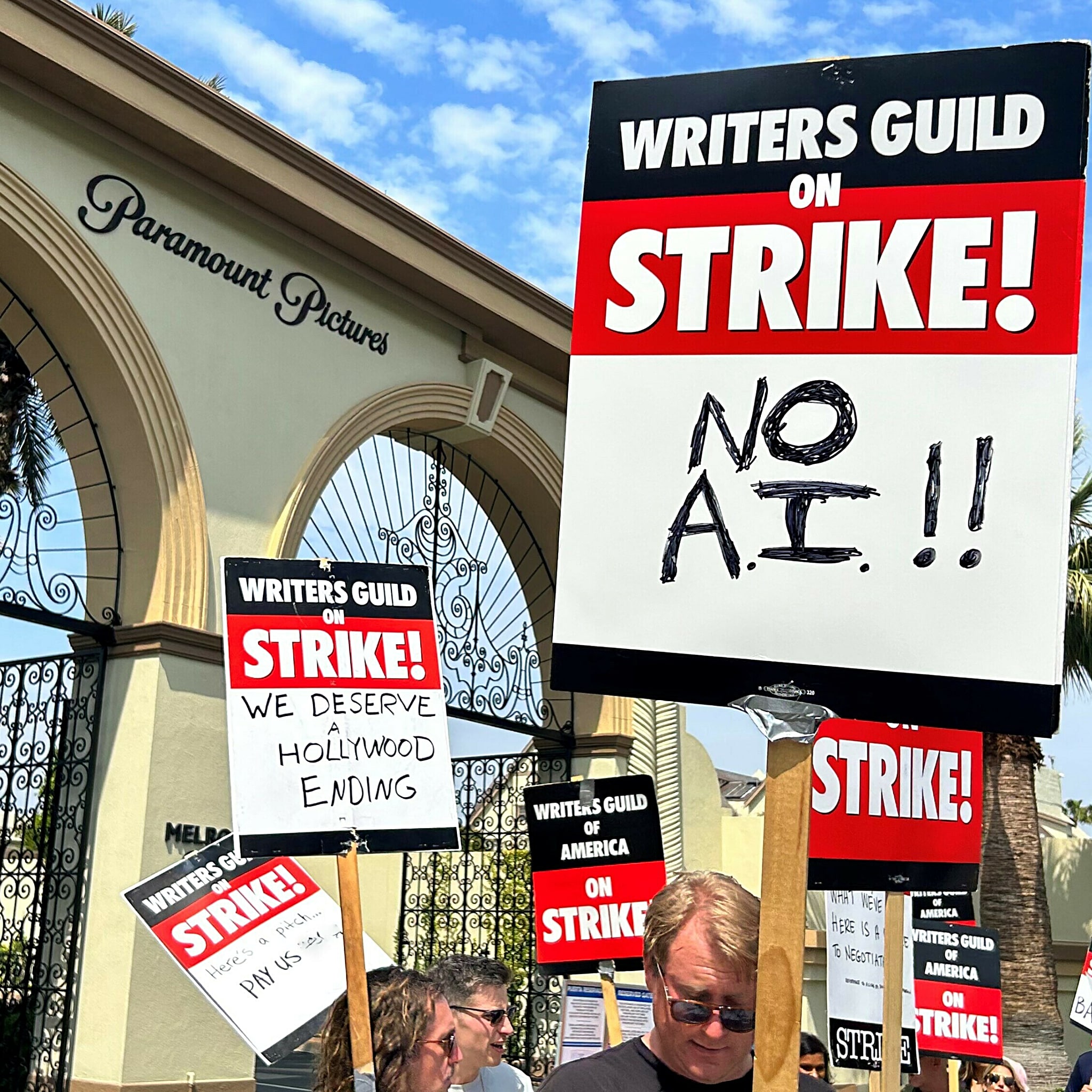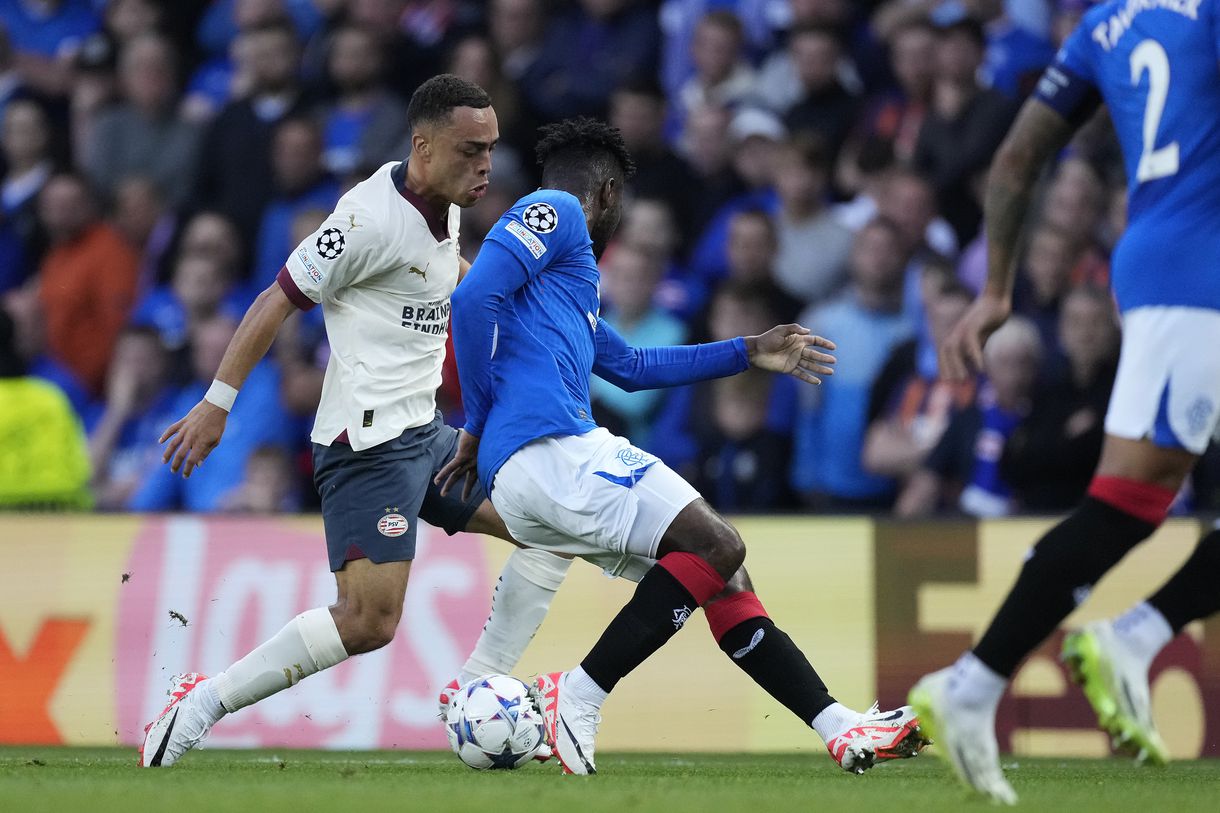Hollywood At A Standstill: The Joint Actors And Writers Strike

Table of Contents
- The Core Issues Fueling the Hollywood Strike
- Fair Wages and Residuals in the Streaming Era
- The Rise of AI and its Impact on Creative Workers
- Working Conditions and Health Benefits
- The Impact of the Hollywood Strike
- Disruption to Film and Television Production
- Economic Ripple Effects Beyond Hollywood
- The Impact on Viewers and Consumers
- Potential Resolutions and the Path Forward
- Conclusion
The Core Issues Fueling the Hollywood Strike
The Hollywood strike isn't just about money; it's about fairness, job security, and the future of creative work in the digital age. Several key issues fuel the conflict:
Fair Wages and Residuals in the Streaming Era
The shift from traditional media to streaming has drastically altered the compensation landscape for writers and actors. The traditional model of residuals—payments for reruns and syndication—has been severely diminished by streaming platforms, which often pay a flat fee regardless of viewership. This has led to significant income loss for many creatives.
- Decreased Residuals: While a network television show might generate substantial residuals over years of syndication, a streaming show often pays a one-time fee, even with millions of views.
- Reduced Minimums: Minimum salaries for actors and writers haven't kept pace with the inflation and the increased profits generated by streaming services.
- Unequal Revenue Sharing: The immense profits generated by streaming giants are not being fairly shared with the creative workforce who generate their content.
- Specific Demands: The unions are demanding fairer residual structures tied to streaming viewership, significant increases in minimum pay, and a more equitable share of streaming revenue.
The Rise of AI and its Impact on Creative Workers
The increasing use of artificial intelligence in the entertainment industry is another major point of contention. Concerns center around the potential for AI to replace human writers and actors, creating digital doubles without their consent or compensation.
- AI-generated Scripts: The fear is that AI could be used to generate scripts, reducing the demand for human writers.
- Digital Doubles: The creation of digital doubles using AI raises concerns about the exploitation of actors' likenesses and potential job displacement.
- Lack of Control: Actors and writers lack control and compensation for the use of their work and likeness in AI-generated content.
- Union Demands: The unions are pushing for regulations that protect against the unauthorized use of AI, guarantee fair compensation for AI-generated content using their likeness, and prevent widespread job displacement.
Working Conditions and Health Benefits
The entertainment industry is notoriously demanding, with long hours, grueling schedules, and often inadequate healthcare benefits, especially for freelance and gig workers.
- Excessive Working Hours: The prevalence of 12-hour days, seven-day weeks is commonplace, leading to burnout and health issues.
- Inadequate Health Insurance: Many actors and writers struggle to afford healthcare, particularly those working on short-term projects.
- Exploitation of Freelance Workers: The industry relies heavily on freelancers, often without the protections afforded to full-time employees.
- Union Demands: The unions are advocating for improved working conditions, mandated rest periods, stronger healthcare benefits, and better protections for freelance and gig workers.
The Impact of the Hollywood Strike
The Hollywood strike has far-reaching consequences, extending beyond the entertainment industry itself.
Disruption to Film and Television Production
The strike has caused a near-total shutdown of film and television production. Many projects are on hold, with uncertain timelines for resuming production.
- Delayed Releases: Numerous highly anticipated films and TV shows face significant delays.
- Cancelled Projects: Some projects have been cancelled outright due to the prolonged strike.
- Financial Losses: Studios and production companies are facing significant financial losses due to production halts.
- Impact on Crew: Thousands of crew members—including camera operators, editors, and grips—are out of work, experiencing financial hardship.
Economic Ripple Effects Beyond Hollywood
The economic impact extends far beyond Hollywood studios and production companies. Related industries are feeling the pinch.
- Tourism: The decline in film production affects tourism in locations frequently used for filming.
- Local Economies: Businesses that rely on the entertainment industry, such as restaurants, hotels, and transportation services, are experiencing reduced revenue.
- Supporting Industries: Catering companies, equipment rental businesses, and other support services are experiencing significant job losses.
The Impact on Viewers and Consumers
Viewers are also experiencing the effects of the strike, facing potential delays in their favorite shows and movies.
- Delayed Releases: New seasons of TV shows and releases of major films are being postponed indefinitely.
- Lack of New Content: Streaming platforms are struggling with a shortage of fresh content, leading to subscriber dissatisfaction.
- Impact on Consumer Choice: The lack of new releases will inevitably impact consumer choice and viewing habits.
Potential Resolutions and the Path Forward
Negotiations between the unions (WGA and SAG-AFTRA) and the Alliance of Motion Picture and Television Producers (AMPTP) are ongoing. A resolution requires compromise on both sides.
- Fair Residuals: A revised system for paying residuals in the streaming era is crucial.
- AI Regulations: Clear guidelines and regulations on the use of AI in the entertainment industry are necessary.
- Improved Working Conditions: Substantial improvements in working conditions, healthcare benefits, and protections for freelance workers are essential.
- Long-Term Implications: The outcome of this strike will significantly impact the future of the entertainment industry and the creative workforce for years to come.
Conclusion
The Hollywood strike, fueled by critical issues surrounding fair wages, the rise of AI, and working conditions, has brought the entertainment industry to a standstill. Understanding the complexities of this joint actors and writers strike is crucial for comprehending its profound impact on the creative landscape. The outcome of these negotiations will not only shape the future of Hollywood but will also set a precedent for other industries facing similar challenges in the digital age. Stay informed about the ongoing developments in the Hollywood strike and support fair labor practices in the entertainment industry. Keep up-to-date on the latest news about the Hollywood strike and its implications for the future of creative work.

 Usmnt Weekend Dest Returns Pulisic Scores
Usmnt Weekend Dest Returns Pulisic Scores
 Hanouna Sur M6 Un Animateur Star Reagit
Hanouna Sur M6 Un Animateur Star Reagit
 Pope Franciss Successor Examining Nine Leading Candidates
Pope Franciss Successor Examining Nine Leading Candidates
 Deciphering Aaron Judges Stats What They Mean For The Yankees In 2025
Deciphering Aaron Judges Stats What They Mean For The Yankees In 2025
 Mainz Vs Holstein Kiel A Crucial Point In The Fight Against Relegation And For Champions League Qualification
Mainz Vs Holstein Kiel A Crucial Point In The Fight Against Relegation And For Champions League Qualification
